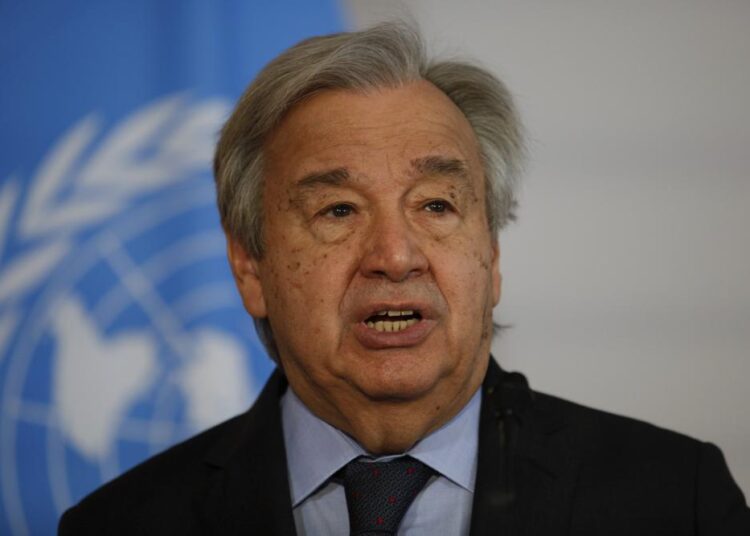GENEVA — The United Nations chief on Wednesday launched a five-point plan to jump-start broader use of renewable energies, hoping to revive world attention on climate change as the UN’s weather agency reported that greenhouse gas concentrations, ocean heat, sea-level rise, and ocean acidification hit new records last year, according to AP.
“We must end fossil fuel pollution and accelerate the renewable energy transition before we incinerate our only home,” UN Secretary-General Antonio Guterres said. “Time is running out.”
His latest stark warning about possible environmental disaster comes after the World Meteorological Organisation issued its State of the Climate Report for 2021, which said the last seven years were the seven hottest on record. The impacts of extreme weather have led to deaths and disease, migration, and economic losses in the hundreds of billions of dollars — and the fallout is continuing this year, WMO said.
“Today’s State of the Climate report is a dismal litany of humanity’s failure to tackle climate disruption,” Guterres said. “The global energy system is broken and bringing us ever closer to climate catastrophe.”
In his plan, which leans into the next UN climate conference taking place in Egypt in November, Guterres called for fostering technology transfer and lifting of intellectual property protections in renewable technologies, like battery storage.
Such ambitions – as with his call for transfers of technologies aimed to fight Covid-19 – can cause innovators and their financial backers to bristle: They want to reap the benefits of their knowledge, investments and discoveries — not just give them away.
Secondly, Guterres wants to broaden access to supply chains and raw materials that go into renewable technologies, which are now concentrated in a few powerful countries.
The UN chief also wants governments to reform in ways that can promote renewable energies, such as by fast-tracking solar and wind projects.
Fourth, he called for a shift away from government subsidies for fossil fuels that now total a half-trillion dollars per year. That’s no easy task: Such subsidies can ease the pinch in many consumers’ pockets – but ultimately help inject cash into corporate coffers too.
“While people suffer from high prices at the pump, the oil and gas industry is raking in billions from a distorted market,” Guterres said. “This scandal must stop.”
Finally, Guterres says private and public investments in renewable energy must triple to at least $4 trillion dollars a year. He noted that government subsidies for fossil fuels are today more than three times higher than those for renewables.
Those UN initiatives are built upon a central idea: That human-generated emissions of greenhouse gas in the industrial era have locked in excess heat in the atmosphere, on the Earth’s surface, and in the oceans and seas. The knock-on effect has contributed to more frequent and severe natural disasters like drought, hurricanes, flooding and forest fires.
Climate scientist Zeke Hausfather of the tech company Stripe and Berkeley Earth, a nonprofit focused on environmental data science, says a good way to head toward net-zero emissions is “to make clean energy cheap.”






Discussion about this post